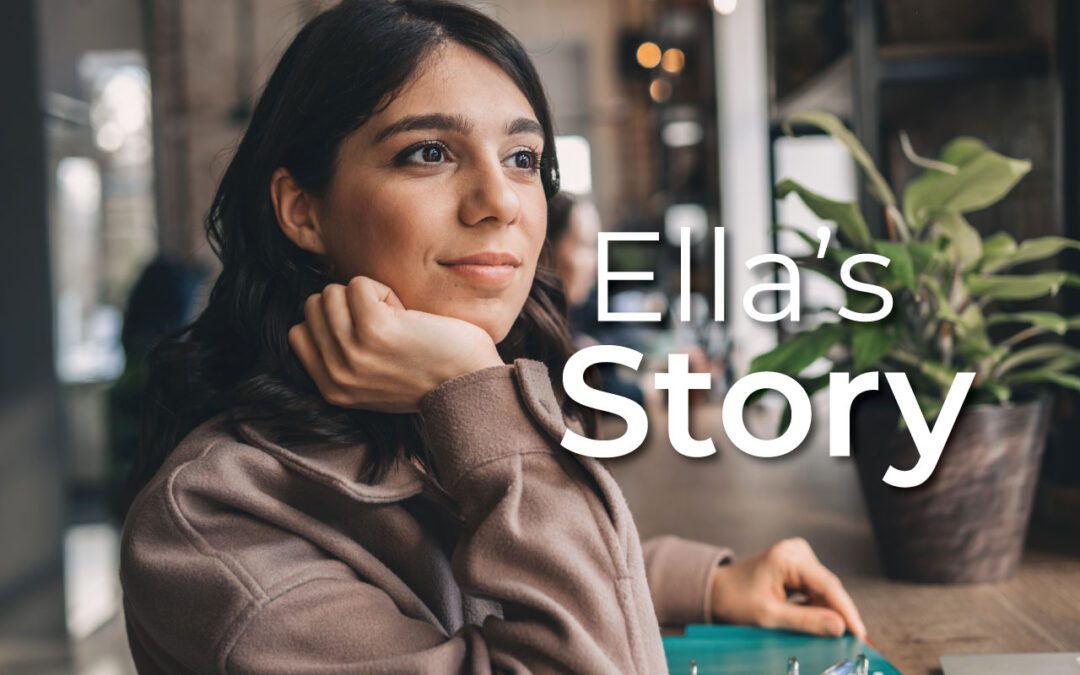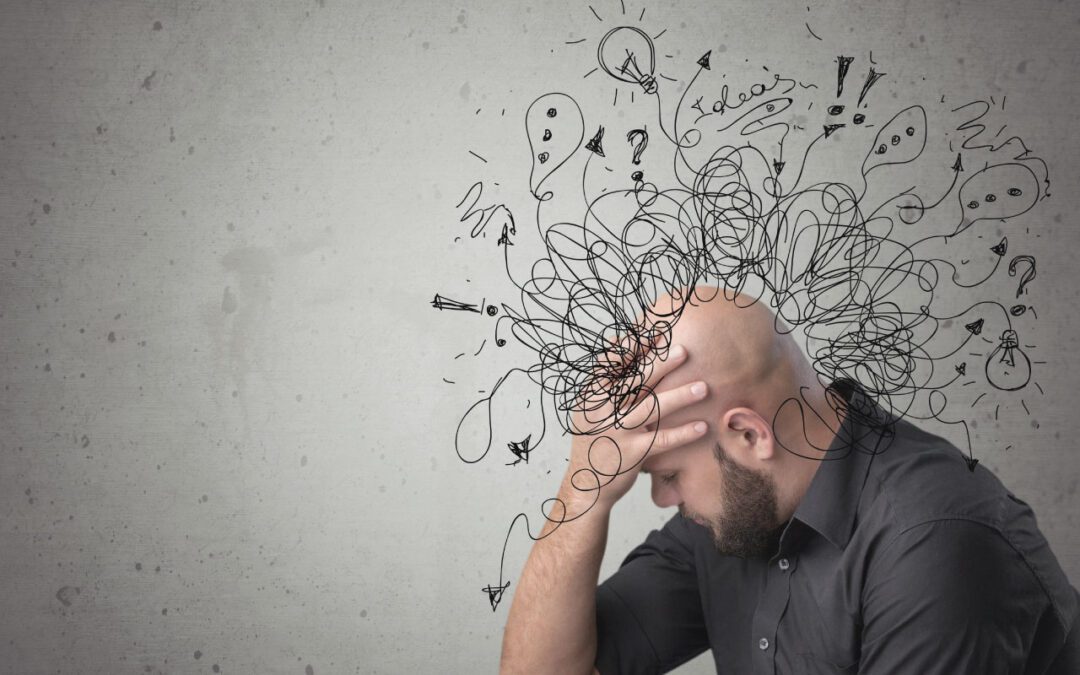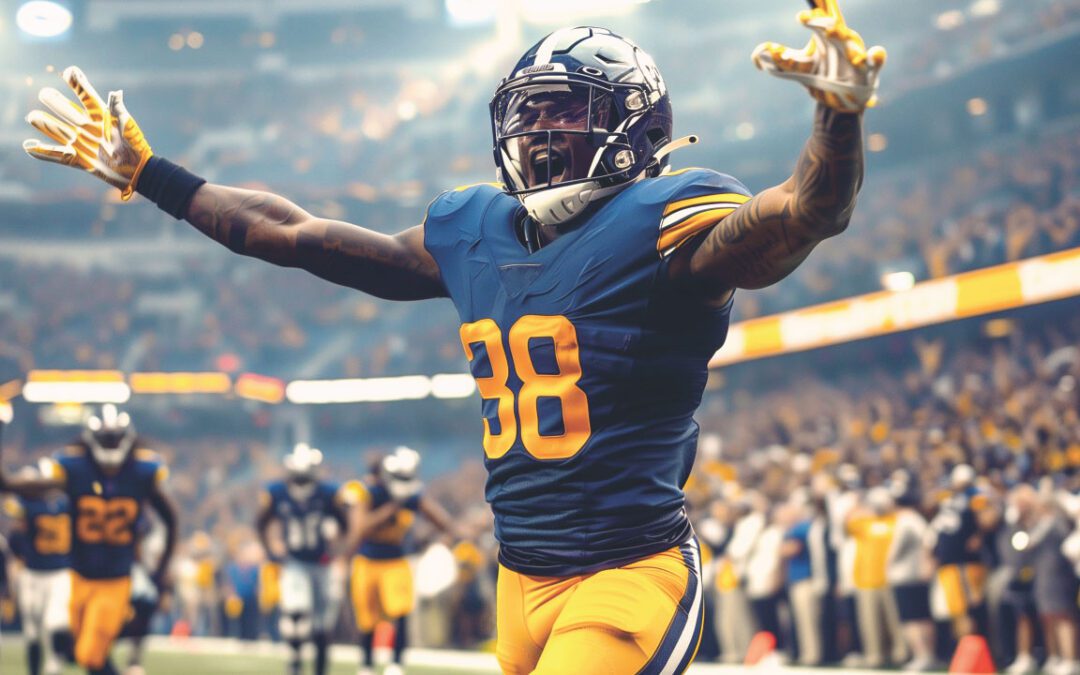
Sep 5, 2025 | PROBLEM GAMBLING, RECOVERY
I’ll never forget the day my manager called me into his office. “I have something to tell you,” he said. “There’s something I need to get off my chest. I have a problem … I owe a lot of money.”
I had a sense he gambled. He had a VIP parking spot at a casino and often talked about the free gifts and fancy dinners they gave him. I figured he went a lot—but I had no idea how deep it really went.
I was shocked to learn it was a gambling addiction. He’s very faith-based, and his father was a minister. I just didn’t expect it.
His disclosure stirred up a lot of emotions. At first, I was kind of mad. Why was he telling me this? Why put me in this position? I felt like I shouldn’t even know. And because part of his job involved overseeing money, I worried—was my paycheck at risk?
Then my thinking shifted: How do I support him without enabling him? And since he was my boss, how do I even navigate that? I felt torn between what was best for me, for him—he was also my friend—and for our employer.
I remember when we were planning a team-building event and he suggested having it take place at a casino. I told him I wasn’t comfortable with that. That wasn’t easy to do, but it felt good to hold that boundary.
Still, I cared about him and wanted to help. I knew I was in over my head, and that he needed more than I could offer. Luckily, I knew someone who had been through addiction recovery himself. He’d always been honest with me about his experience.
My manager was open to meeting him. So the two of us, along with his daughter, met him for coffee. He shared what recovery looked like—offering hope but also reminding him that he had work to do.
Looking back, I realize how powerful it is when people open up and share. My manager’s honesty—and my friend’s willingness to tell his story—really showed me that.
I’m happy to say he’s doing well now. He’s in counseling, attending meetings and has put other safeguards in place.
I’ve learned a lot from this experience. Recovery takes a village—you can’t do it alone, and you can’t be someone’s only support. You can help connect them to resources, but ultimately it’s their road to walk. You didn’t break them, and you can’t fix them.
Boundaries matter. Be kind but firm. And don’t judge. Behind every issue—addiction, depression, narcissism—there’s a deeper wound. The behavior is just a symptom.
In the end, compassion is everything. No one’s perfect. But recovery is real—and it’s a great place to be.

Sep 5, 2025 | PROBLEM GAMBLING, RESEARCH
Two newly published reports, commissioned by GambleAware and developed in collaboration with IFF Research, have highlighted a concerning connection between neurodivergence and gambling harms. Conducted by Dr. Amy Sweet of the University of Bristol and Dr. Tim Morris of University College London and the University of Bristol, the studies indicate that neurodivergent individuals—those with conditions such as ADHD, autism, dyslexia, dyspraxia or dyscalculia—are more vulnerable to experiencing gambling-related harm, despite not gambling more frequently than neurotypical individuals.
The first report explored the availability and effectiveness of support for neurodivergent gamblers. It found that individuals with conditions like autism or ADHD often struggle with impulsivity and financial management, which can intensify the risks associated with gambling. For many, gambling becomes a “coping mechanism,” offering temporary relief from feelings of social isolation, marginalization or unmet mental stimulation needs. However, these strategies often lead to serious consequences, including financial hardship, damaged relationships and setbacks in education or employment.
The report emphasized the need for tailored treatment approaches that consider specific traits like attention difficulties. Early intervention is crucial, as many individuals only seek help after facing significant harm. The study also called for streamlined, accessible support services and greater use of peer networks to offer non-judgmental spaces for those hesitant to engage with formal treatment systems.
The second report pointed to a significant knowledge gap in the understanding of how gambling affects neurodivergent people. It noted that the intersection of gambling harm and neurodiversity remains under-researched, and encouraged further studies to explore how factors such as age, gender and ethnicity may influence these experiences. This lack of data presents both a challenge and an opportunity to improve future prevention and support strategies.
In response to the findings, Haroon Chowdry, GambleAware’s director of evidence and insights, stressed the need for improved public awareness around gambling risks, including mandatory health warnings and clearer support pathways. Clare Palmer of IFF Research added that their next phase will involve developing practical tools in partnership with Ara Recovery 4 All and lived experience experts to enhance future service delivery.
Overall, the reports underscore the urgent need for more inclusive, responsive gambling support systems tailored to the unique challenges faced by neurodivergent individuals.

Sep 5, 2025 | PROBLEM GAMBLING
Prediction markets, platforms where people trade on the outcomes of future events, are experiencing a significant surge in popularity and are moving toward mainstream adoption. How exactly do these markets work, are they legal, do they constitute gambling and should they be regulated to ensure there are protections in place for those who might become addicted?
What are prediction markets?
A prediction market or betting market is an exchange-traded market where individuals can bet on the outcome of a variety of events with an unknown future. These events can involve elections, financial markets (such as whether or not the S&P 500 index will close above a specific level by year end), sports (such as whether a specific football team will win the Super Bowl) or even pop culture (such as whether a specific film will win the Academy Award for best picture). They just have to involve “yes or no” questions that will be resolved by a specific date.
Prediction markets run on a type of financial instrument known as an event contract. An event contract has a nominal value — often $1 — and traders can buy “yes” or “no” positions on it for some fraction of that value. When the event happens, the contract pays out to whoever was right.
For example, an event contract could involve whether Candidate A or Candidate B will win an election. If a trader buys a “yes” position on a Candidate A for 25 cents, and Candidate A ultimately does win the election, the trader would earn $1. But if the trader were wrong and Candidate B won, they’d get nothing and would lose their 25 cents.
From a larger perspective, prediction markets are based on the principle that aggregating the predictions of many individuals can lead to more accurate forecasts than relying on a single expert, opinion or poll.
Do prediction markets constitute gambling?
While there are various legal arguments opining on whether prediction markets constitute gambling or not, the perspective of the National Council on Problem Gambling (NCPG) is that it doesn’t make a significant difference. “From a problem gambling standpoint, anyone can develop an addiction to this activity, just as they can develop an addiction in legalized gambling markets,” says Cole Wogoman, director of government relations and league partnerships with NCPG.
The need for problem gambling safeguards
“Putting aside whether futures legally constitute gambling, from a problem gambling standpoint, betting on futures is functionally gambling,” says Cole. “The line between purchasing futures and gambling has particularly blurred with markets offered related to sporting events. NCPG is concerned about a form of gambling taking place outside of the responsible gambling tools framework and problem gambling safeguards required by gambling regulators.”
The legality of prediction markets
The legal status of prediction markets is complex and subject to ongoing debate. Historically, regulators have generally taken a firm stance against unlicensed online betting platforms. The central question is whether prediction markets, especially those involving sports outcomes, fall under the exclusive jurisdiction of the Commodity Futures Trading Commission (CFTC) or are also subject to state gambling laws. If prediction markets are not regulated, there will be no protections for consumers.
“Our position is that the CFTC needs to regulate prediction markets so they’re on a par with other legalized forms of gambling and offering the related protections that state and tribal regulators provide,” says Cole. Otherwise, Cole says, the CFTC should not allow these markets.
The issue is particularly concerning to tribes and gambling regulators. “If prediction market activity is allowed without any regulation, it renders the efforts of those who have worked to provide protections for legalized gambling essentially meaningless if people can avoid all the laws already in place,” says Cole. Prediction markets also do not pay any gambling taxes like legalized gambling markets, and therefore do not contribute to funding used to prevent and treat gambling addiction.
Stay tuned as we track continuing developments with regard to prediction markets and NCPG’s efforts to ensure there is appropriate oversight of these potentially dangerous transactions.

Jun 18, 2025 | PROBLEM GAMBLING, RECOVERY, STORIES
I was seven the first time I gambled. We were visiting my grandmother, and the older ladies in her building taught me how to play rummy—for nickels. We played for six hours, and by the end of the night, I’d taken all their money. I remember asking my parents the next day when I could gamble with them again.
There was a lot happening at home around that time. My sister’s teenage pregnancy caused constant tension and uncertainty. Playing cards with my grandmother gave me a break from the chaos.
When I turned 18, I went to the local casino with friends and my dad. I blew through my paycheck in minutes. My dad handed me $50 for my birthday so I could keep playing. I ended up winning some money back. That was cool.
Later, after dropping out of college because I felt homesick and unsure of what I wanted, I became a blackjack dealer. I discovered a benefit for employees—you could cash your paycheck for free at the casino. On payday, I’d often stick around until I either lost everything or doubled my money.
Poker was growing in popularity then, and I got good at it. I played tournaments around the Midwest and would often stay and play more poker or blackjack afterward.
Not long after, I began experiencing serious depression. Doctors gave me different diagnoses, and I was eventually labeled bipolar. I went through intensive rehab for depression.
I got married and moved to Minneapolis, but we didn’t stay long. We returned to rural life, and I got another job at a casino. About a year into the marriage, my husband relapsed after drug treatment. I flushed his drugs down the toilet, and he tried to choke me. A coworker helped me pack up and leave.
I kept working at the casino, but my mental health didn’t improve. Looking back, I can see how gambling highs lifted me way up, and losses sank me just as hard. I attempted suicide multiple times.
After years in and out of treatment, I finally stopped going to casinos. I met my current husband and went several years without the compulsion to gamble. I could even go to a casino with friends or my husband and be responsible.
A year into our marriage, I had my first daughter. I struggled with postpartum depression and soon realized that being a stay-at-home mom wasn’t for me—I needed more social interaction. I started going to the casino in the evenings, just to get out of the house.
Eventually, I took a job as a program coordinator for a home health company. I was working 60 to 70 hours a week, often leaving before my daughter woke up and coming home after she was asleep.
A year later, I got pregnant again. My son was born with a heart condition and passed away a week after birth. That sent me into a tailspin. I didn’t want to go back to work. I went on extended medical leave and returned to therapy.
After my sessions, I’d often go to the casino. That’s when my husband first voiced concern. He asked me to talk to my therapist about it—but I didn’t.
I got another job and became pregnant again. Despite everything, I still found reasons to go to the casino. I opened a separate bank account so my husband couldn’t see how much I was spending—or losing. He started to worry about our finances.
About three years ago, I lied to my husband so I could spend the day gambling. I stayed at the casino for 14 hours, lost everything in our accounts and maxed out all of our credit cards, including the ones he didn’t know about. That night, I realized this was more than depression. I remembered hearing the term “compulsive gambling” when I worked at casinos but had never imagined it applied to me. I even called the 800 number posted on the casino door—but hung up when someone finally answered.
A few weeks later, my husband found a W-2G form showing gambling winnings I hadn’t told him about. He started asking more questions about our finances. I still didn’t tell him I had drained our 401(k) or spent $29,000 worth of insurance checks we got for roof repairs as gambling money. I thought I could double it. I didn’t.
I kept losing. Then one night, before heading out, I wrote my husband a letter telling him everything. I left it on the counter with our credit cards and checking info. I told him I’d understand if he didn’t want to try anymore.
He read the letter after putting our kids to bed. He called me and told me to come home so we could talk. It was the longest night of my life. I felt like the worst person in the world.
That Sunday, I went to my first GA meeting. We researched treatment options and found the Vanguard Center for Gambling Recovery 30 miles away. I called them the next day and signed up.
I completed a 30-day inpatient program. It was the hardest and best thing I’ve ever done—especially being away from my kids with only limited contact.
Since then, I haven’t gambled. I attend two to three GA meetings a week and stay connected with others in recovery. I even went to the first international GA conference since COVID. I’ve found peace among people who understand what I’ve been through.
Now, life is boring—and that’s a good thing. Boring means peace, stability, and being present for my family.

Jun 18, 2025 | PROBLEM GAMBLING, SPORTS BETTING
The NCAA is considering a significant revision to its sports betting policy that would permit student-athletes, coaches and staff to wager on professional sports, while maintaining the existing ban on betting related to collegiate athletics. This potential policy shift, currently under discussion by the Division I Council, follows a 21–1 vote by the Division I Board of Directors in favor of deregulating the prohibition on professional sports wagering. If approved, the changes could be implemented as early as June 2025.
With legalized sports betting now available in 40 states, the NCAA’s current blanket ban has become increasingly challenging to enforce, often leading to disciplinary actions for minor infractions involving low-stakes bets. By allowing betting on professional sports, the NCAA aims to reallocate its enforcement resources to focus on more serious threats to the integrity of college sports, such as point-shaving and game-fixing.
The NCAA is also exploring the implementation of harm-reduction strategies, including safe harbor provisions and reduced penalties for individuals who seek help for problem gambling. This approach reflects a broader shift in the NCAA’s stance on sports betting, emphasizing education and support over punitive measures.
Lastly, the NCAA and Genius Sports have expanded their partnership, with Genius Sports becoming the exclusive provider of official NCAA game data to licensed sportsbooks for all post-season tournaments, including March Madness, through 2032.
This potential policy change aligns with the NCAA’s recent initiatives to modernize its approach to sports betting, as evidenced by its expanded partnership with Genius Sports to distribute official game data to licensed sportsbooks.
MNAPG’s Take
While MNAPG is officially gambling-neutral, we have concerns that the NCAA is capitulating to the pressures of ever-growing sports gambling. While we applaud the NCAA’s exploration of harm-reduction strategies, we fear the long-term implications of these developments will be serious for college students and athletes.
Some of the real-time data provided by Genius Sports to sportsbook is used to generate and continuously update odds for various in-play prop bets, such as “next goal scorer” or “next touchdown.” Given the high risks involved with prop bets, we think the ready and uniform availability of official data will only feed this concern.

Mar 14, 2025 | PROBLEM GAMBLING, RESEARCH
Read the original article on the BASIS HERE.
By Kira Landauer, MPH
Adolescent gambling is common, with many young people gambling before reaching a legal gambling age. This is concerning because underage gambling increases the risk of experiencing gambling problems later in life. Parental attitudes and behaviors are crucial to positive youth development, and gambling behaviors are no exception. This week, The WAGER reviews a study by Cassandra K. Dittman and colleagues that examined adolescent gambling from the perspective of parents in New South Wales, Australia.
What were the research questions?
(1) What are parents’ knowledge of and attitudes towards their adolescent child’s gambling? (2) Are adolescents exposed to gambling via their parents’ gambling?
What did the researchers do?
The researchers recruited 1,185 parents (31% fathers, 69% mothers) of adolescents in New South Wales, Australia. Participants completed an online survey. They were asked about their attitudes towards adolescent gambling and ranked their concern with gambling alongside other adolescent issues (e.g., bullying, alcohol use). Parents reported both their adolescent child’s and their own gambling behavior over the past 12 months and whether they had gambled with their adolescent present. The researchers used descriptive statistics to explore parental attitudes towards gambling and adolescent gambling exposure and gambling behavior. They used comparison tests such as ANOVA to examine differences across these facets by parent and adolescent gender.
What did they find?
Most parents disapproved of adolescent exposure to gambling. However, parents were less concerned with gambling compared to other adolescent issues like bullying and drug use. Twenty-seven percent of parents reported that their adolescent had gambled in the past year. Of the 947 parents who reported past-year gambling themselves, two-thirds had gambled with their adolescent present. Skin betting and fantasy sports betting were the most common parent-adolescent gambling activities (see Figure). Compared to mothers, fathers engaged in more gambling in the presence of their adolescent. Fathers also gambled more with their adolescent sons compared to daughters.

Figure. Frequency of adolescent exposure to their parent’s gambling in the past year, by gambling activity and among parents who participated in that gambling activity. Please note: Figure does not depict the percent of parents from the sample who participated in each activity. For example, 12.0% of parents participated in skin betting in the past 12 months. Of them, 74.6% did so in the presence of their adolescent child at least once. Click image to enlarge.
Why do these findings matter?
Adolescents often gamble with the knowledge of their parents, and that some parents–particularly fathers–actively facilitate their child’s gambling by involving them in their personal gambling activities. Parents may underestimate the risks associated with adolescent gambling. This could be because gambling is generally perceived as socially acceptable and often portrayed positively (e.g., through advertisements). Parents, and fathers in particular, could benefit from increased awareness and education about the risks associated with youth gambling, through initiatives like the GambleAware Parents Campaign.
Every study has limitations. What are the limitations of this study?
Participants might not have been fully representative of the Australian parent population and their responses may be subject to self-report biases such as recall bias. This study examined parental knowledge of their adolescent child’s gambling. It is possible that adolescents gamble more than their parents realize, so the frequency of adolescent gambling reported by parents may be an underestimate.
For more information:
The Massachusetts Department of Public Health provides information for parents about the risks of teen gambling and a guide for talking about gambling. Do you think that you or someone you know might have a gambling problem? Visit the National Council on Problem Gambling for screening tools and resources. For additional resources, including gambling and self-help tools, visit our Addiction Resources page.
— Kira Landauer, MPH
Page 2 of 14«12345...10...»Last »







